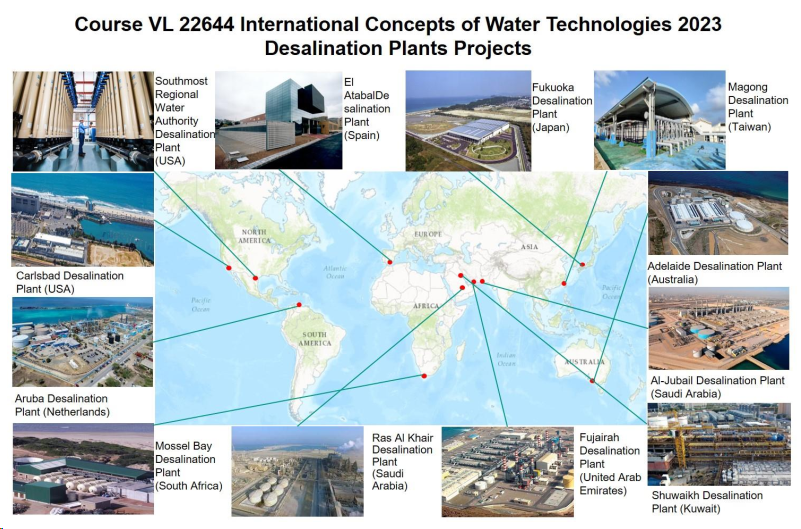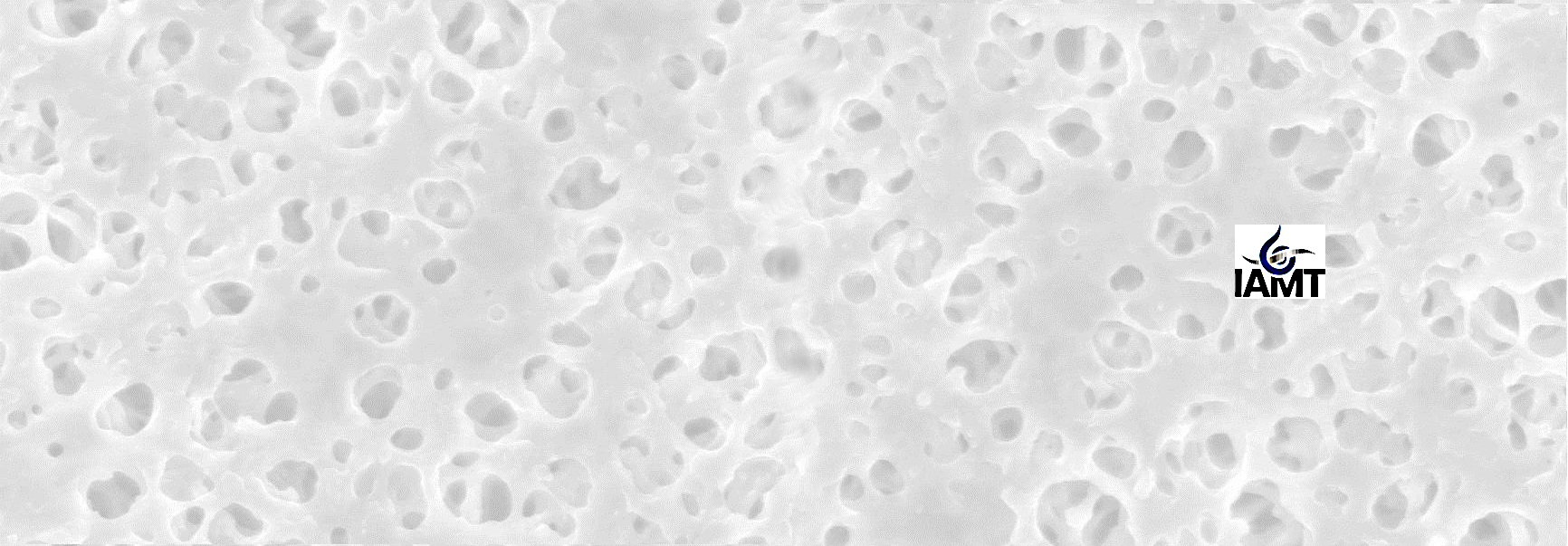International Concepts in Water Treatment
- Type: Lecture
- Semester: SS 2023
-
Place:
Building 30.70
Seminar room 206
KIT Campus South -
Time:
Thursdays 9.45 – 13.00
- Start: 20.04.2023
- Lecturer:
- SWS: 4
- ECTS: 5 ECTS
- Lv-No.: 22644
- Exam: Report and group presentation
The course is held in English and the assignment/presentation are to be prepared in English. Participants must attend all presentations and attendance is expected in lectures & tutorials – and of course in group work seeing the course is applying an innovative concept of project and student based learning.
Effort: 5 LP which requires typically an effort of 150 hours, of which 56 h (4 SWS) are contact time during lectures and tutorial time, 54 h group and self study and 40 h preparation of assessments and participation at the group presentations (one full day Thursday 3rd of August 2023).
Assessment: Assignment of 25 pages and an oral presentation of 15 minutes (team work). The grade will be a composite of the Case study report (assignment, submission on the 27th of July before class) and presentation (3rd of August (all day workshop with industry participation)).
Course Contents: Global water issues, international water quality guidelines, concepts of water technologies, desalination, water reuse, water energy nexus, decentralized systems, emergency water supplies, water & sanitation in international development, renewable energies, operating concepts.
Learning Goals: The students can explain concepts of water technologies (e.g. desalination, water reuse, decentralized systems, water & sanitation in international development) in their international context. The fundamentals of relevant water technologies will be understood and mass balances of water, contaminants and energy calculated. Based on these calculations decisions will be made how available water will be treated. After an overview on relevant renewable energies water technologies that are powered with renewable energies will be considered. An important ability in the international context are an understanding of the varying circumstances that are essential for decision making and successful system integration. Contributing factors of cost, operating strategies, cultural awareness, local environment and infrastructure availability are some of those factors to be considered.
Course Organization and Student Information: The course is a project and student based learning course with a small number of introductory lectures that introduce basic concepts and essential ‘vocabulary’. Short impulse lectures on selected topics to be covered in the project by tutors and a majority of time in lectures and tutorials to perform project work assisted by a tutor. It is the aim to introduce a more innovative style of learning while enhancing confidence in working in English (this is for most the first opportunity to study in English, learning this is part of the expected student experience and should not result in excessive anxiety as we expect that students are not ‘fluent’ J) while at the same time presenting results in form of a presentation and a written report instead of an exam (which is probably also a first such experience). This style of working requires group members to participate and organize work in a team, which is why attendance is expected. Each team will have a dedicated individual tutor with international (research) experience who will be learning with the team. While this concept was offered in Australia previously and was extremely popular with students, it is offered for the first time at KIT. Places will be limited and to manage demand, it is requested that all students interested in the course register and attend the first lecture on 20th April, where there will be time to ask questions and meet the tutors. Group/case study preferences need to be submitted by 4th May after which no more deregistration is possible because teams need to be formed for group work to commence 25th May.
The topic for group work is a case study on waste water reuse with membrane technology, which is a technology that is applied globally to overcome increasing water stress. Each team will work on a real waste water reuse plant as a case study, collect information about water quality and plant design from various sources and direct communications, and in the course of the project redesign this plant (using membrane manufacturer software) and assess operational particularities and challenges. Sourcing information from various literature resources are a major part of the learning. A guest lecture from industry will give information about real life trouble shooting in such desalination plants. The selected case studies are summarized below.

